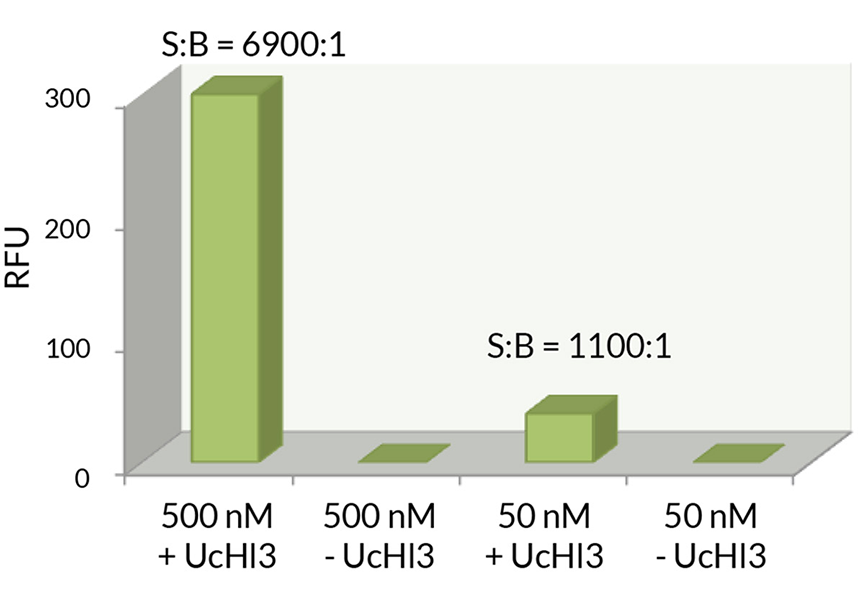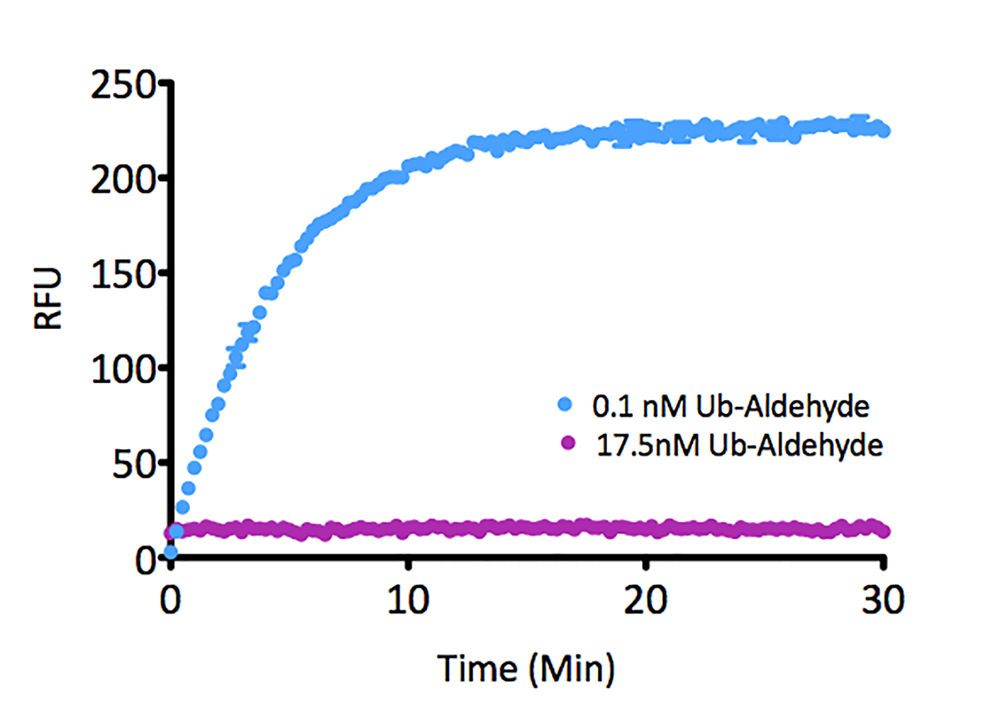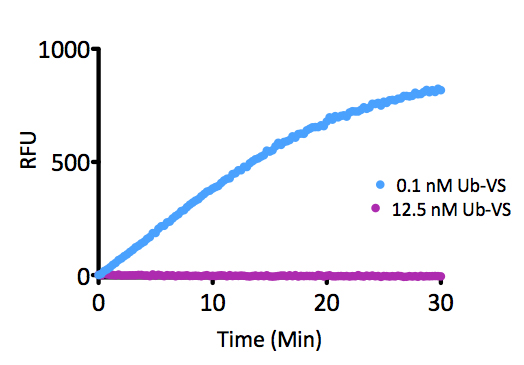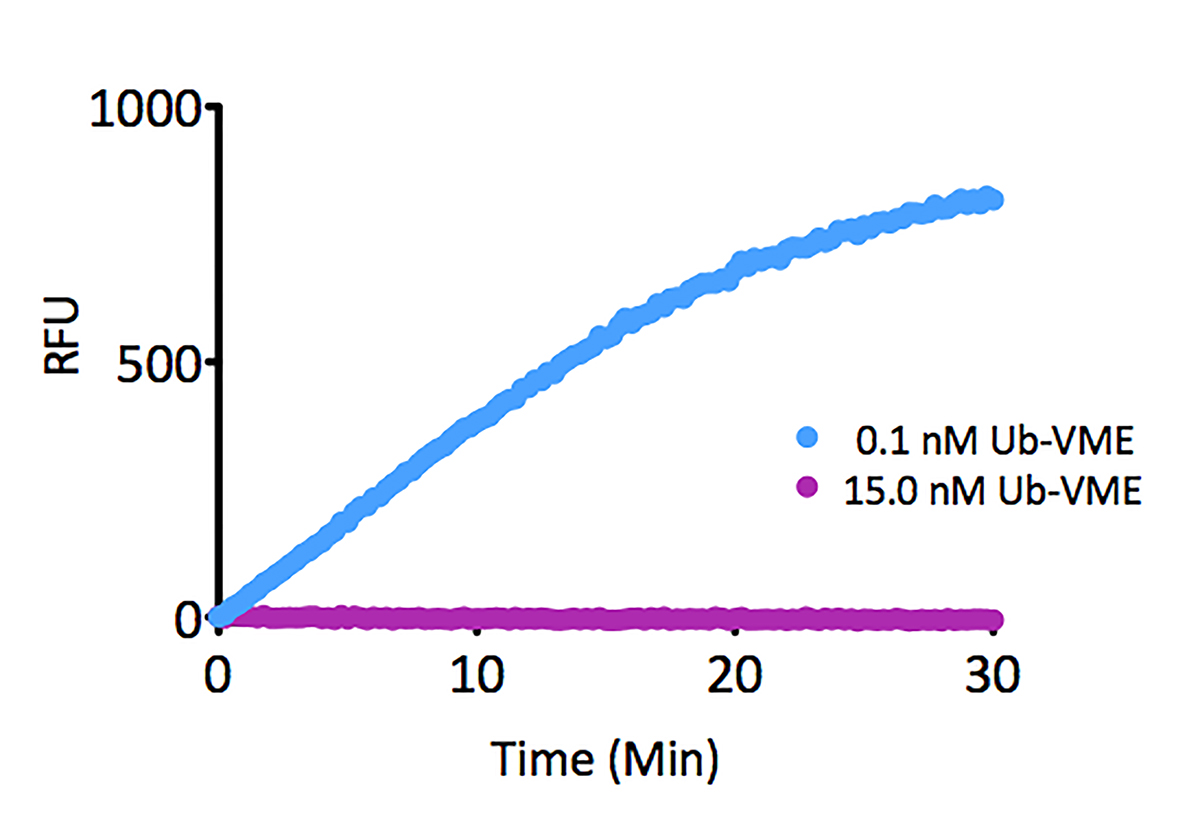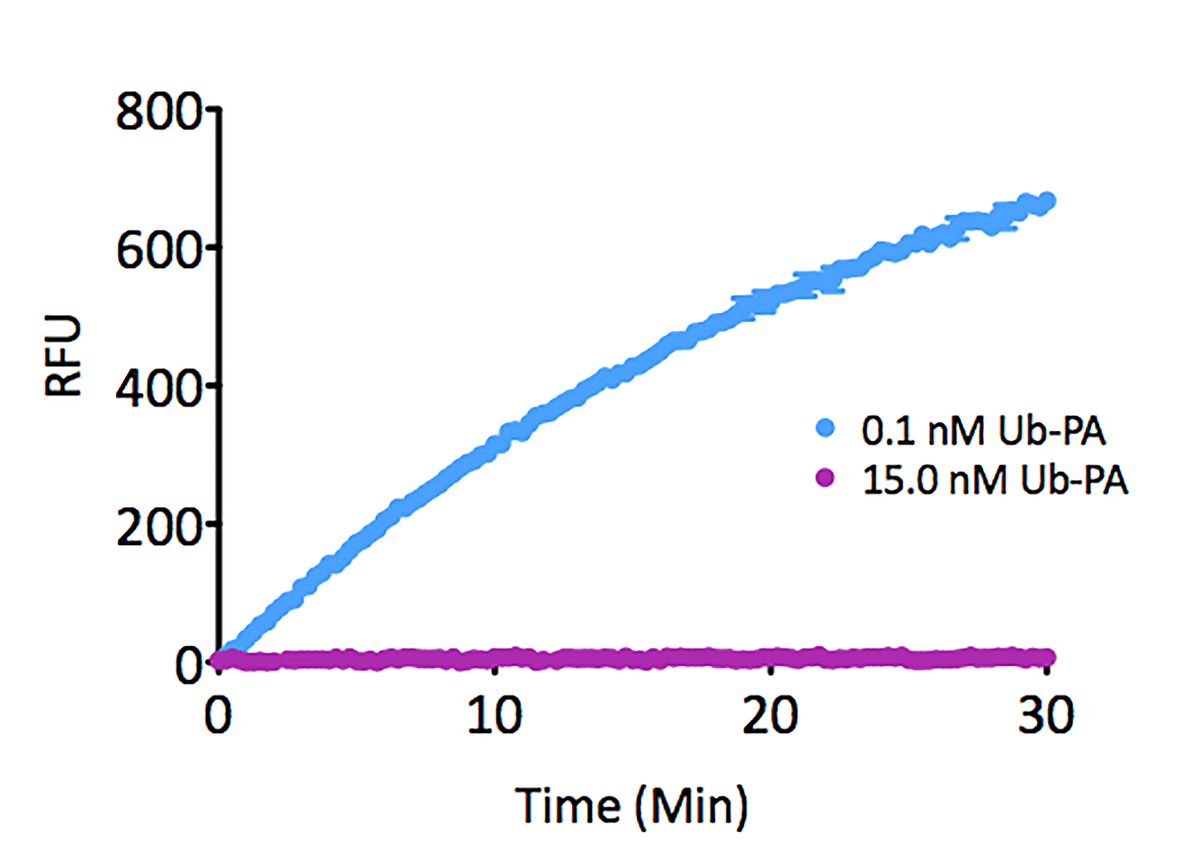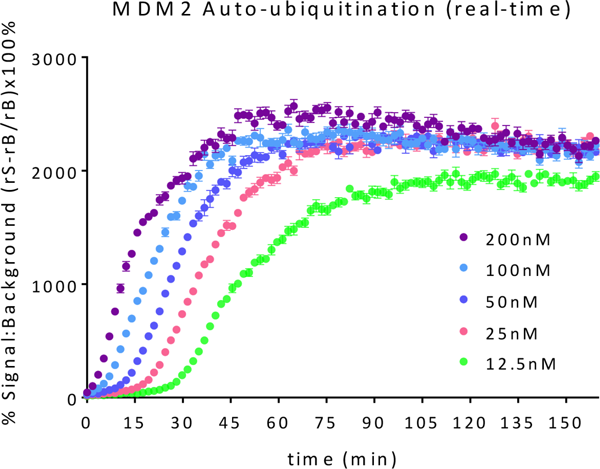TRF-Ubiquitin Mix (100X) (400 reactions)
SBB-TR0051-4H
Product group Proteins / Signaling Molecules
Overview
- SupplierSouth Bay Bio
- Product NameTRF-Ubiquitin Mix (100X) (400 reactions)
- Delivery Days Customer10
- CertificationResearch Use Only
- Estimated Purity>99%
- Scientific DescriptionProtein. Souce: E. coli. Liquid. In 50mM HEPES pH 7.5, 100mM sodium chloride. Ubiquitin is a highly conserved protein that plays a major role in the ubiquitination pathway, which is conserved from yeast to mammals. Ubiquitination, the conjugation of ubiquitin to other proteins through a covalent bond between its C-terminal glycine and the epsilon-amino group of lysine residues or the alpha-amino group of an N- terminal methionine onto proteins is essential for many cellular processes primarily linked to protein degradation. This process involves three steps with specific groups of enzymes in an ATP depended manner, which are activation with ubiquitin-activating enzymes (E1s), conjugation with ubiquitin-conjugating enzymes (E2s) and ligation with ubiquitin ligases (E3s). This product is a mix of Europium-Cryptate Ubiquitin (SBB-TR0014), Cy5-Ubiquitin (SBB-TR0015), and wild-type Ubiquitin (SBB-UP0013) in a ratio optimized for TR-FRET based conjugation experiments where long polyubiquitin chains are formed. Under conditions where short ubiquitin chains are formed, a different mix may be required to optimize signal to background ratio. Enzymatic incorporation of the labeled ubiquitins into chains conjugated onto a substrate protein leads to an increase in fluorescence emission at 665nm (Em-Acceptor) and decrease at emission wavelength 620nm (Em-Donor). - Ubiquitin is a highly conserved protein that plays a major role in the ubiquitination pathway, which is conserved from yeast to mammals. Ubiquitination, the conjugation of ubiquitin to other proteins through a covalent bond between its C-terminal glycine and the epsilon-amino group of lysine residues or the alpha-amino group of an N- terminal methionine onto proteins is essential for many cellular processes primarily linked to protein degradation. This process involves three steps with specific groups of enzymes in an ATP depended manner, which are activation with ubiquitin-activating enzymes (E1s), conjugation with ubiquitin-conjugating enzymes (E2s) and ligation with ubiquitin ligases (E3s).
- Storage Instruction-20°C,-80°C
- UNSPSC41116100

